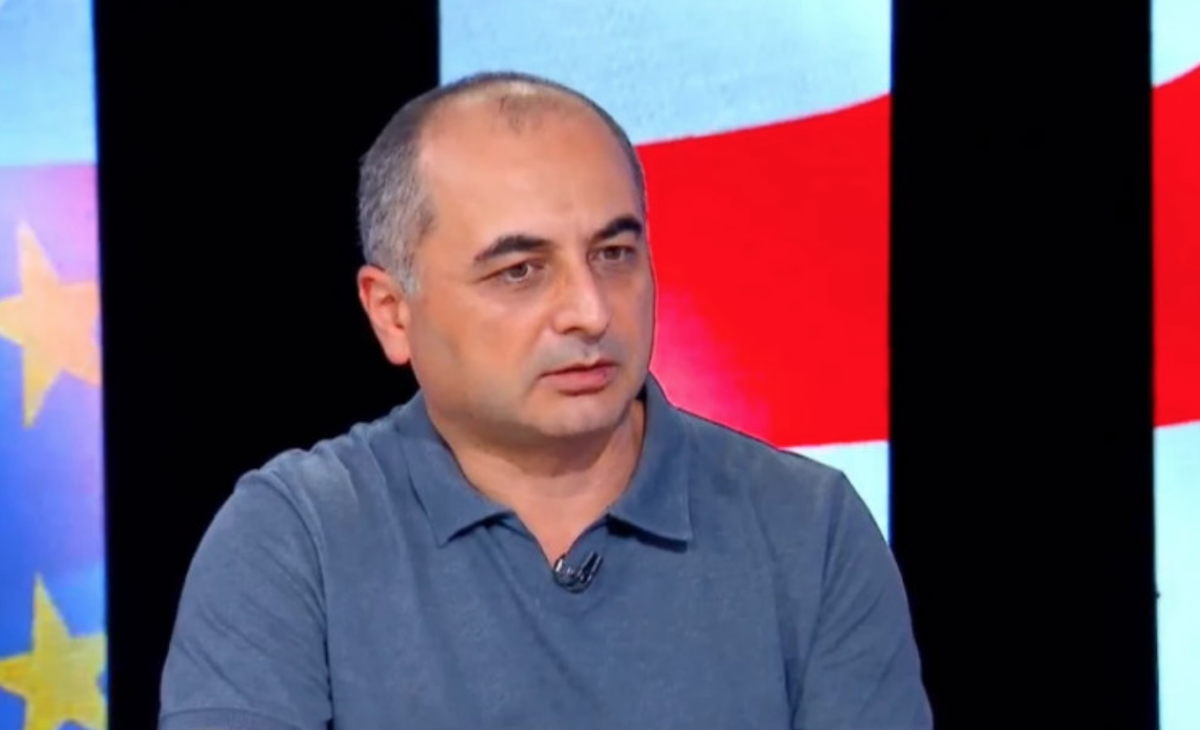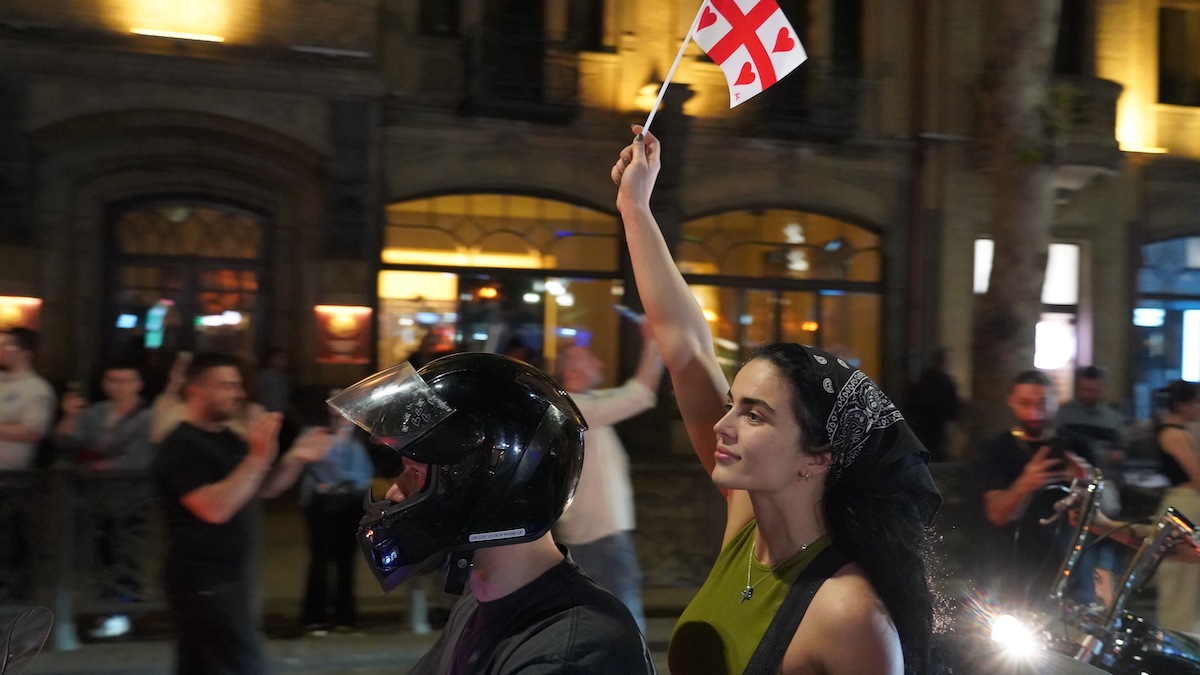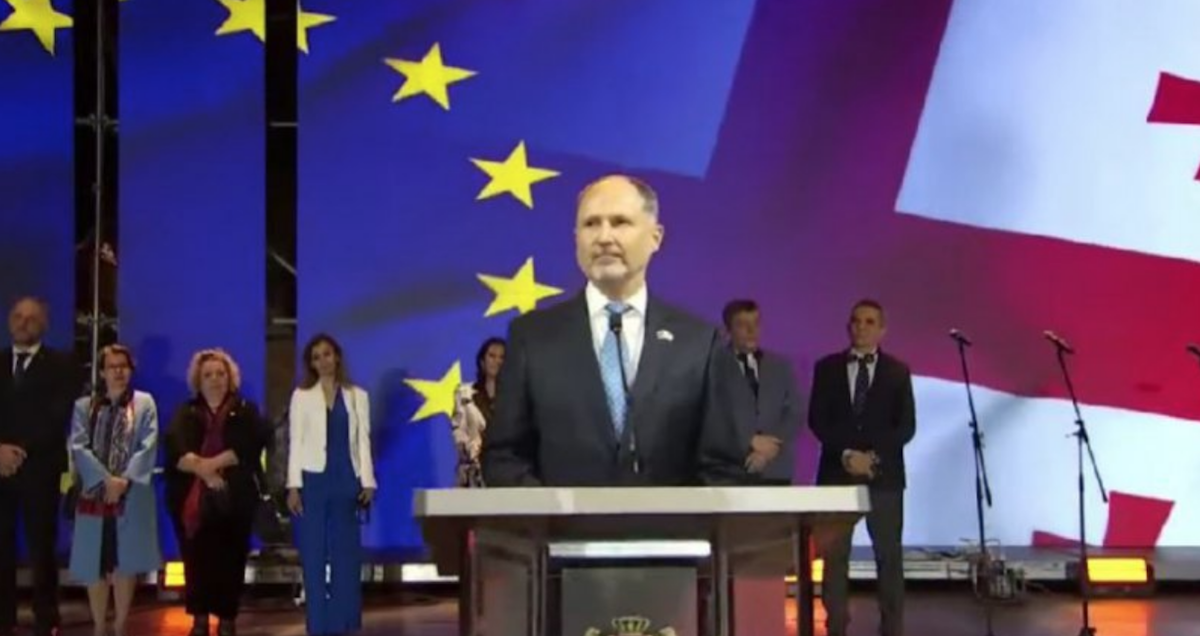Radio Liberty: EU prepared sanctions document against Georgia
EU sanctions against Georgia
Personal sanctions, cessation of financial aid, and, in extreme cases, temporary suspension of visa-free travel—Radio Liberty has obtained a European Commission document outlining steps the EU might take if the political situation in Georgia does not improve.
The document was prepared by the European Commission and the European External Action Service following the May 27 meeting of EU foreign ministers, where they discussed potential EU responses to the adoption of the “foreign agents” law in Georgia.
The first category includes measures that Brussels and individual EU member states can immediately implement in response to the anti-democratic actions of the Georgian government:
- Cancellation of bilateral visits, meetings, and high-level events by the EU and member states (primarily, by default, meetings with heads of state, government leaders, and ministers);
- Cessation of financial aid that directly benefits the government and halting discussions on future financial assistance for them;
- Reevaluation of the financial aid portfolio to increase support for civil society and independent media (not applicable to regional assistance);
- Freezing €30 million in aid allocated for defense and security under the European Peace Facility.
The document mentions that if violence against protesters continues and there are significant violations during the 2024 parliamentary elections, the EU may take tougher measures, such as:
- Issuing recommendations to member states to temporarily suspend visa-free travel for Georgian government officials and diplomats;
- Imposing restrictive measures (sanctions) on individuals and entities involved in serious human rights violations;
- Further suspension of political dialogue with Georgia;
- Further reevaluation of financial aid, suspension of future budgetary support, and further redirection of funds;
- Additional suspension of aid under the Common Security and Defense Policy.
In the event of a “significant deterioration” in the situation, the document discusses potential measures regarding the visa-free regime and the enlargement process.
The document also notes that the EU is considering steps in various formats that could be taken concerning Georgia’s European integration.
Suspension of visa-free regime
According to the document obtained by Radio Liberty, the European Commission is considering the suspension of the visa-free regime with Georgia for nine months as an extreme measure. The Commission acknowledges that this suspension would negatively impact the pro-European population of Georgia. Therefore, it suggests focusing on restricting the entry of certain individuals into the Schengen area.
“Steps related to the liberalization and expansion of the visa regime can be considered, but since their negative consequences will largely be felt by the population, they should be used as a last resort. It is necessary to communicate intensively with the Georgian people, explaining that these measures can be fully revoked depending on the actions of the government,” the document states.
The suspension of the visa-free regime may be announced in the fall when the seventh annual report of the visa suspension mechanism is presented. Given that it is usually published in October, it is likely that the European Commission will announce this decision before the parliamentary elections in Georgia, which are scheduled for October 26.
Elections and civil society
The document emphasizes the importance of parliamentary elections and mentions that the European Commission will implement restrictive measures in the event of election fraud and serious violations in the electoral process.
Until then, the European Union plans to:
- Strengthen the ODIHR/OSCE observation mission by providing “numerous observers”;
- Support projects aimed at voter education and monitoring the pre-election environment with the help of “local and international organizations and media”;
- Enhance support for international and local civil society monitoring capabilities.
What should be known about the “foreign agent” law in Georgia?
● The law on “Transparency of Foreign Influence” was adopted by the ruling party “Georgian Dream” in the third reading on May 28.
● The Georgian authorities passed this law despite large-scale protest demonstrations, persistent calls from Western partners, and a strict opinion from the Venice Commission of the Council of Europe.
● After the law was passed, the U.S. began discussing sanctions against the government of the “Georgian Dream.” On May 23, Secretary of State Antony Blinken announced sanctions against members of the Georgian government, as well as financial sanctions.
● The EU is also considering retaliatory measures against the Georgian government.
● The main argument of the Georgian authorities is that similar laws exist in the United States and some European countries, including France. According to the “Georgian Dream,” each country has the right to protect itself from foreign influence and demand transparency from its organizations.
However, comparing the law adopted by the “Georgian Dream” with the American or European ones is incorrect because:
The American law FARA (Foreign Agents Registration Act), to which the “Georgian Dream” appeals, was adopted in 1938, before World War II, to protect the American population from Nazi propaganda. Neither then nor now does FARA apply to U.S. allies and friendly countries.
As for the law “On the Influence of Foreign States,” which operates in France, there is a specific list of countries to which this law applies and whose increased influence France considers a threat (Russia, China, Turkey, Iran). At the same time, it is particularly noted that this law does not apply to EU countries. In the Georgian law, there is no such provision, and consequently, this law directly affects organizations funded by friendly and partner countries of Georgia – the U.S. and the EU – through which democratic processes are developing in the country.
Furthermore, in FARA and some other laws of this type, it is stipulated that they do not apply to media or NGOs, only to lobbying organizations. There is no such provision in the law adopted in Georgia.
Overall, the Georgian law is similar to the Russian one, which also primarily affected the media and the non-governmental sector. As a result, all non-governmental and media organizations not controlled by the Kremlin were closed in Russia.
It is also important to note that the law adopted in Georgia contradicts EU legislation. When a similar law was adopted in Hungary, it was annulled by the European Court of Human Rights because it was directly aimed at silencing the media and persecuting NGOs.
Establishing such restrictions on friendly partner countries raises concerns that Georgia is changing its foreign policy vector. These concerns are voiced unanimously today by independent Georgian experts, politicians, and representatives of civil society.
The main slogan of the mass protests against the “foreign agent” law is “Yes to Europe, No to Russia!“
The law will come into effect, probably by September, when a special register is ready, in which organizations-“foreign agents” must register.
All organizations, more than 20% of whose funding comes from foreign grants, will be declared foreign agents. In Georgia, a small and poor country, this is almost an absolute majority of non-governmental organizations.
For 33 years of independence, with the help of the EU and the U.S., vital projects have been implemented in all spheres of the country – from healthcare and infrastructure to strengthening civil society.
Now, many media and NGOs are refusing to register as foreign agents because such a label is offensive. “We work honestly in our country, why should we be called ‘carriers of the interests of a foreign state’?” they ask.
Some small organizations have already announced their imminent closure or the suspension of projects. For example, the non-governmental organization Fair Trees Foundation announced that, due to the adoption of this law, the project to open a free children’s dental clinic is being suspended.
Animal rights activists have also made a statement that almost all animal protection organizations in Georgia exist on foreign grants, and if this law comes into force, a significant portion of them will be closed.





















